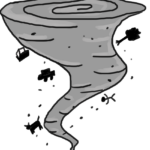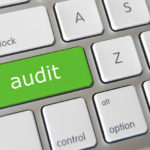
Hands up, everyone who has encountered a claim that a debt is non-dischargeable by reason of §523(a)(14). That’s what I thought: nada, or next thing to it.
Despite watching for it, I hadn’t seen one til this year when AmEx filed an adversary in a case in which I was peripherally involved. My copy of Colliers code doesn’t even comment on any (a)(14) cases.
So, what’s this about credit cards and taxes? The Bankruptcy Reform Act of 1994 added §523(a)(14) making debt incurred to pay federal taxes that would be non-dischargeable under §523(a)(1) non dischargeable. In 2005, Section (a)(14A) was added, extending nondischargeability to debts incurred to pay non dischargeable debts to other governmental units.
The addition of (a)(14) was driven by the IRS’s move to provide for paying taxes by credit card. And that’s what drove the adversary in my case. In it, debtor had charged nearly $10,000 in federal income taxes to his card within a year of the filing. I mention the timing only because it suggests that the credit card records were easily available to AmEx. Query whether the issue would have been so visible if the charge were 3 years old. Or for payroll taxes 8 years ago.
Although this case was filed before entry of the discharge, note that (a)(14) does not require the filing of an adversary within the time limits given for (a)(2), (4), and (6) to prevent discharge. Debts incurred to pay non-dischargeable taxes are simply not discharged on their face.
Taxes paid by credit card in the courts
A quick survey of the few reported cases shows that the litigated issues cluster around two issues: whether the debtor, typically the owner/manager of an entity, was personally liable for the payroll tax paid with his credit card; or whether a debt was “incurred to pay” a non-dischargeable tax. And, of course, they come down on both sides of each question.
The payroll tax owed by the entity was a personal debt of the debtor in Provenzano , No. 12-41474-MBM (Bankr. E.D. Mich. Nov. 26, 2012); in White, 455 B.R. 141 (Bankr. N.D. Ind. 2011)Y, the court found that no evidence had been introduced to establish that the debtor had responsible person liability.
On whether the debt was “incurred to pay” the non dischargeable tax, Hoven v. Bank of Kaukauna, 470 B.R. 822 (E.D. Wis. 2012) held that the fact that payroll taxes were among the corporate checks honored despite an overdrawn account did not make the tax portion of the overdraft total incurred to pay the tax. While in Dinan, 425 B.R. 583 (Bankr. D. Nev. 2010), a loan to a distressed business used in part to pay taxes within a week of funding was incurred for that purpose. (On appeal, the 9th Cir. BAP found the attorneys fees provision of the loan extended to the non dischargeability litigation.)
The Chapter 13 good news
Most importantly for Chapter 13 practitioners, §523(a)(14) is not among the statutory exceptions to the Chapter 13 discharge. Thus, if the priority tax is unpaid at filing, §1328(a)(2) excludes the tax from discharge. But, if an otherwise non dischargeable tax was paid by credit card, the credit card charge is dischargeable. That’s potentially a huge swing in outcomes.
Which brings us to counseling clients on the choice of chapter. We need to add to our list of gating inquiries of prospective filers a question about paying taxes by credit card or other forms of loans. An affirmative to that question adds to the reasons to file Chapter 13. And for clients with (a)(14) exposure who elect Chapter 7, a written disclosure of the risk is in order.
More
The 3 year rule for discharging taxes







